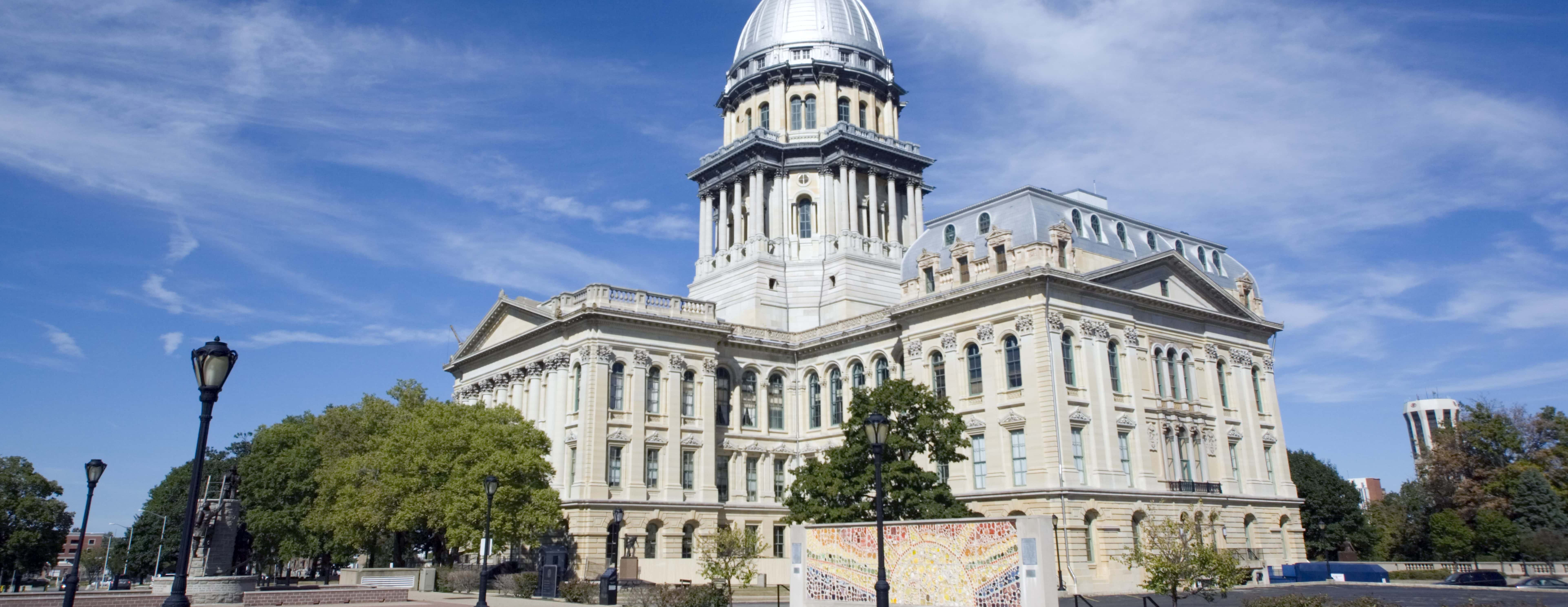
SPRINGFIELD, Ill. (IRN) — Republicans in the Illinois House Special Investigating Committee looking into Speaker Michael Madigan’s involvement in a nearly decade-long patronage scheme may seek to issue subpoenas.
In July, federal prosecutors announced a deferred prosecution agreement that utility ComEd entered into that outlined a nearly 10-year long bribery scheme in which the utility gave ghost jobs to allies of “Public Official A” in order to curry favorable legislation. “Public Official A” was identified not by name but as the Speaker of the Illinois House.
On Friday, Madigan, D-Chicago, who’s been speaker for all but two years since 1983, declined to voluntarily testify, saying he’s not exercising his rights against self incrimination. He maintains he’s done nothing wrong. Madigan hasn’t been charged with a crime.
The deferred prosecution agreement “does not attribute any misconduct to me,” Madigan wrote.
He then took nearly three pages of a single-spaced letter to the committee about how he thinks it’s his duty to help people, including helping those seeking employment.
“I have never helped someone find a job with an expectation that the person would not be asked to perform work by his or her employer,” he said. “I have never made a legislative decision with improper motives.
“In conclusion, I cannot provide information I do not have, and cannot answer questions about issues of which I have no knowledge,” he wrote.
Committee minority spokesman state Rep. Tom Demmer, R-Dixon, is disappointed Madigan won’t voluntarily testify.
“Speaker Madigan wrote a very long letter making certain assertions and indicating his involvement, or lack of involvement, knowledge or lack of knowledge of various things, those are precisely the kinds of questions we should be asking in the committee,” Demmer said. “We should have the opportunity not just to take a submitted statement that he has prepared but to instead bring him in, under oath, and have this conversation in the committee.”
Demmer said Madigan not voluntarily testifying hurts the process.
“This is a very serious process and one that I think deserves input and cooperation and the ability for the committee to really dig in and find the truth,” Demmer said.
Others asked by the Special Investigating Committee to voluntarily testify also declined.
“While Mr. [Jay] Doherty understands and respects the committee’s responsibility to accomplish its objectives, at this time and upon the advice of counsel, Mr. Doherty declines the invitation to appear and be questioned,” Doherty attorney Michael Gillespie wrote to the committee.
Doherty was a lobbyist with ComEd.
Another former ComEd official, Fidel Marquez, was also asked to voluntarily testify, but he is expected in federal court Tuesday to answer to bribery charges. Charging documents against Marquez also implicated Madigan.
Committee chairman, state Rep. Chris Welch, D-HIllside, said he’s received no formal indication of any witness planning to testify.
“The committee will proceed as scheduled with our Tuesday, Sept. 29 hearing at 2 p.m., and I ask all members to come prepared to conduct themselves in a manner reflective of the serious business before us,” Welch said in a statement Friday.
Demmer expects some testimony about the issue Tuesday.
“We expect to hear from a representative of Commonwealth Edison who has agreed to appear before the committee,” Demmer said. “We expect to hear from them about the deferred prosecution agreement and have an opportunity for members of the committee to ask questions of them.”
Demmer also expects there may be a motion Tuesday to subpoena not just Madigan and others, but also documents related to the case.
“We know the nature of the investigation means that you don’t just talk to people who are eager to talk to you but you talk to folks who may not be so eager to talk to you in order to get a full picture of the situation,” Demmer said. “The question of a subpoena is one that I think we’ll have to deal with as a committee and decide which witnesses we want to issue subpoenas to and for what documents we might want to issue subpoenas.”
Such a motion could fail if it’s split along party lines in the six-member bipartisan committee. Demmer wouldn’t predict that’ll happen.
“Instead I point to the clear and public indication by both Republicans and Democrats in prominent positions across the state that we need to have answers to these very serious facts that Commonwealth Edison has admitted to,” Demmer said.
Messages seeking comment from Welch Monday were not returned.
The committee meets in Springfield at 2 p.m. Tuesday.
By GREG BISHOP for the Illinois Radio Network
